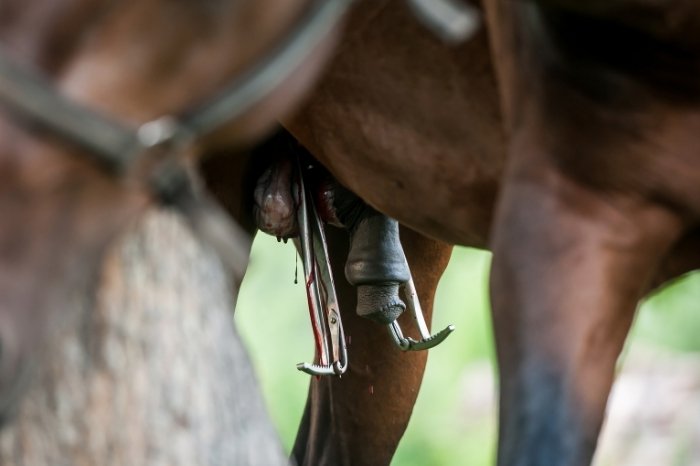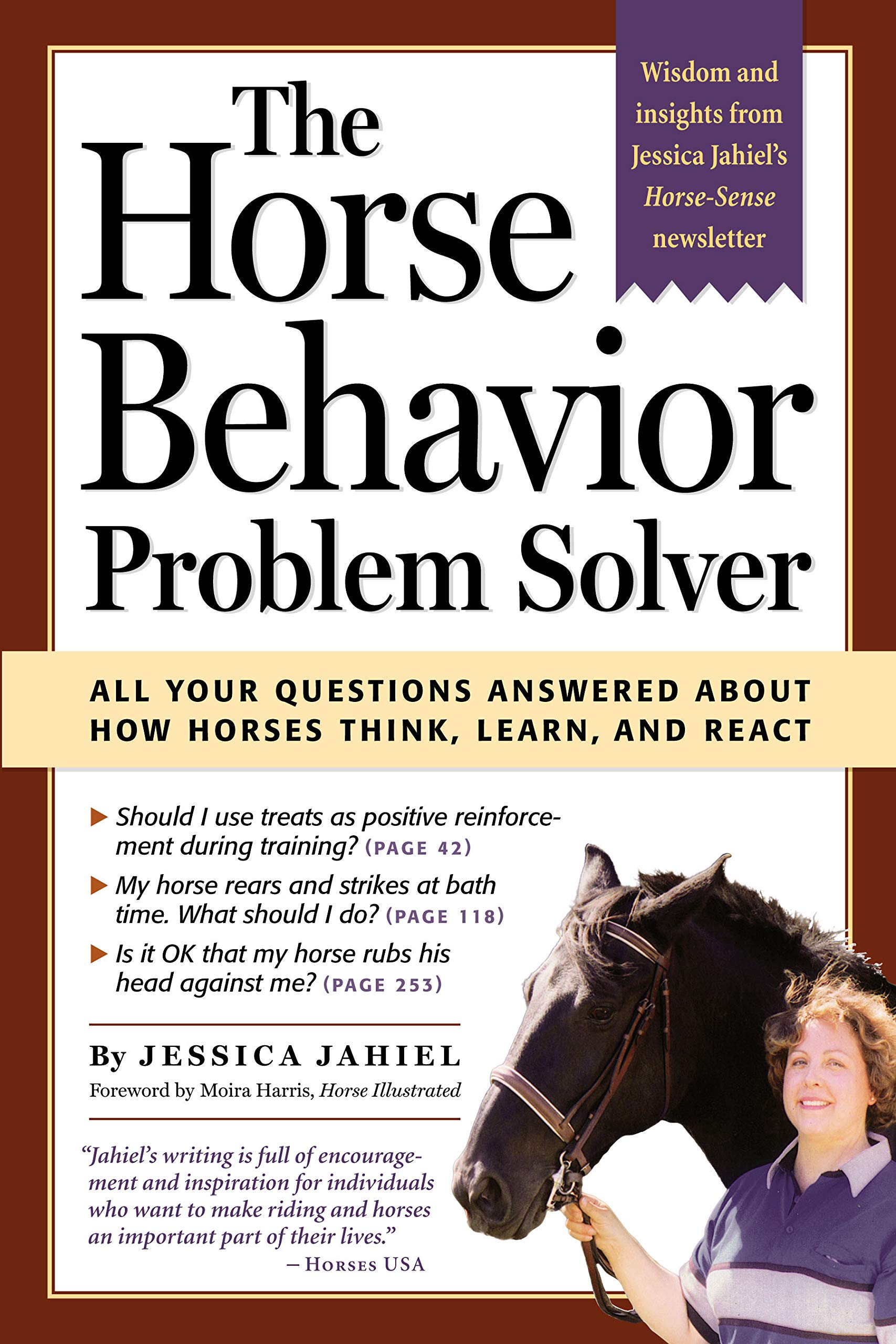Last Updated on July 8, 2022
Castrating a horse may seem like an unpleasant procedure, and you might be wondering why castrate a horse and not leave it entire? There is a good reason why most male horses are castrated, as we will find out today!
What Is A Castrated Horse?
A castrated horse is a male horse that has been neutered. You will also hear this referred to as a horse that has been gelded, with the horse then called a gelding.
Neutering is a surgical procedure carried out on many different mammals, both male and female. It involves removing or disabling part of the reproductive system so that the animal can no longer have babies.

In horses, this procedure is very rarely carried out in female horses, also referred to as mares. This is because neutering a mare is a highly invasive and risky surgical procedure, that brings no benefits to the mare or horse owner. This means that the majority of female horses retain the ability to breed throughout their adult life.
However, the vast majority of male horses are neutered, or castrated, at a young age. Entire male horses, also called stallions, make up a very small proportion of the equine population. Only the best stallions are kept for breeding, and the remainder is neutered at a young age.
Check Out Can Humans Get Strangles From Horses?
Why Castrate A Horse?
The answer to why castrate a horse is that neutering a male horse ensures that it has a placid and calmer temperament. Entire male horses have high levels of testosterone, which leads to them being excitable, aggressive, dominant, and easily aroused in presence of mares. Once a horse is gelded, the testosterone levels drop and it will become much easier to handle and more amenable.
Geldings can also live happily alongside mares and other geldings, whereas stallions require special management and often need to be kept alone. Keeping a stallion requires experience and specialist facilities.
One important reason why male horses are castrated is to help prevent overpopulation and unwanted breeding of horses. Irresponsible breeding has in the past led to high numbers of unwanted foals, which often end up neglected or abandoned. Castrating a male horse means it can no longer breed with mares and helps to prevent unwanted equine pregnancies.
The Horse Behavior Problem Solver
Many horse welfare charities help people who cannot afford to have their horses gelded by holding castration clinics. Here, equine veterinarians offer their services to carry out castrations at a reduced cost, helping to get large numbers of horses gelded that would otherwise be left entire.
Read more about Hyaluronic Acid For Horses Injection – Everything You Need To Know!
How Are Horses Castrated?
When a horse is castrated, a surgical procedure is carried out that removes both the testicles and some of the adjacent tissues. There are two ways in which this procedure can be performed.
The first option is standing gelding, during which an open method of castration is used. This method is used for calm, amenable horses that have two fully descended testicles. The horse is given a large amount of sedation and painkiller, as well as local anesthetic around the surgical site.
The second castration technique is performed under general anesthesia, and for this most veterinarians follow a closed castration technique. This means the surgical site is sutured closed, whereas in the open technique the wound is not sutured and takes longer to heal.
Both methods have their advantages and disadvantages, and your veterinarian will discuss which is the best option for your colt. General anesthesia is the preferred option for older colts and stallions, those with behavioral problems, and any male horse that does not have two fully descended testicles. However, giving a horse a general anesthetic is a risky procedure in itself, so it is preferable to do a standing castration under sedation if possible.
Standing castration also has the advantage that this procedure can be carried out away from the equine hospital, so you may be able to get your colt gelded at home. However, there is a higher risk of post-operative complications with this technique, as it is difficult to maintain a high standard of asepsis.
After a horse is castrated, it will require a period of rest to allow the wound to heal. Most veterinarians recommend that the horse is turned out during the recovery period to reduce swelling, and that good fly prevention methods should be implemented.
Summary – Why Castrate A Horse?
So, as we have learned, the answer to why castrate a horse is that neutering a male horse ensures that it has a placid and calmer temperament. Geldings can also live happily alongside mares and other geldings, whereas stallions require special management and often need to be kept alone. The vast majority of male horses are gelded, and only those which are intended for breeding are left entire.
We’d love to hear your thoughts on why castrate a horse! Have you ever watched this interesting procedure being carried out? Or maybe you’ve got some questions about the best time to have your colt castrated? Leave a comment below and we’ll get back to you!
FAQ’s

Kate Chalmers is a qualified veterinary nurse who has specialized in horse care for the vast majority of her career. She has been around horses since she was a child, starting out riding ponies and helping out at the local stables before going on to college to study Horse Care & Management. She has backed and trained many horses during her lifetime and competed in various equestrian sports at different levels.
After Kate qualified as a veterinary nurse, she provided nursing care to the patients of a large equine veterinary hospital for many years. She then went on to teach horse care and veterinary nursing at one of the top colleges in the country. This has led to an in-depth knowledge of the care needs of horses and their various medical ailments, as well as a life-long passion for educating horse owners on how to provide the best possible care for their four-legged friends.
Kate Chalmers BSc (Hons) CVN, Dip AVN (Equine) Dip HE CVN EVN VN A1 PGCE

